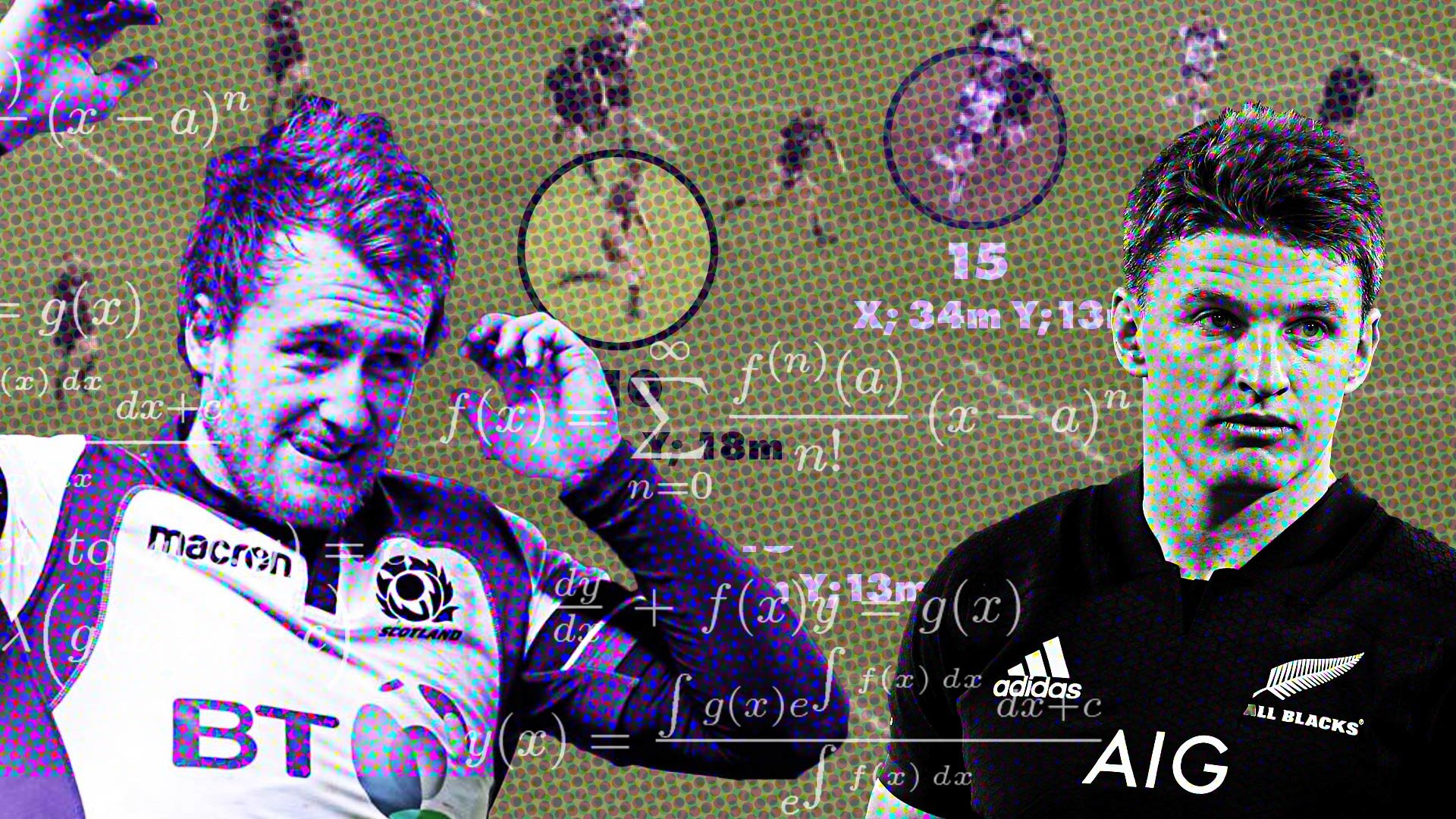Analysis: Could Stuart Hogg have scored that try against the All Blacks?

In an interview with BBC Radio, Scotland fullback Stuart Hogg revealed the missed chance to finally beat the All Blacks still haunts him.
“I’ve watched it far too many times and every single time I watch it I’ll think back to what could have been … if Beauden Barrett hadn’t bumped me into touch I could have scored or whatever. It has been a bit difficult,” Hogg laments.
In the dying stages of the All Blacks test at Murrayfield, the match came down to Hogg vs Barrett in a foot race. Hogg for the corner, Barrett for the sideline.
Barrett made the cover tackle and the 112-year Scottish drought against the All Blacks remained.
“It kills me because the amount of different times I’ve looked at it and seen what I could do a little bit different is frustrating me big time … especially when you have an injury and can’t make up for it,” said Hogg.
But could Stuart Hogg actually have scored the winner against the All Blacks and made history? We break down the play and conclusively determine if Hogg or Scotland could’ve scored.
2-man deep
With less than a minute remaining the All Blacks are in ‘close out’ defence structure – playing with two fullbacks back (both kicking options) and both wingers up in the line.
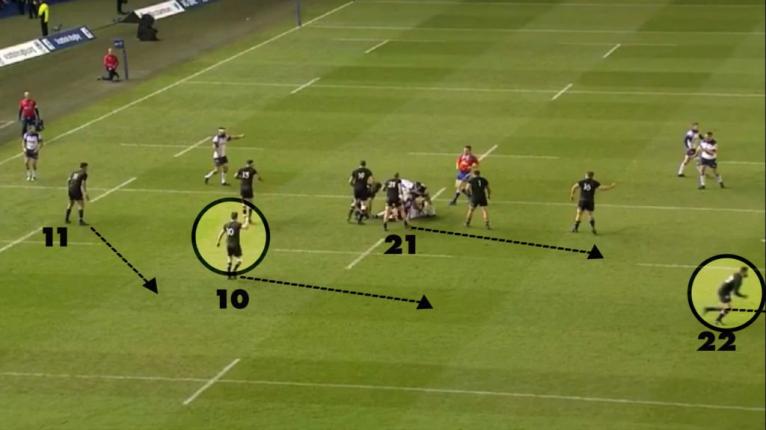
At this point in the match, starting fullback Damian McKenzie (15) is playing right wing, Beauden Barrett (10) is now fullback and Lima Sopoaga (22) is playing first five-eighth.
As Scotland bring the play back to the left, Sopoaga makes his decision to cover the overlap and commit to the last man as he knows he has inside cover with Perenara and Barrett.
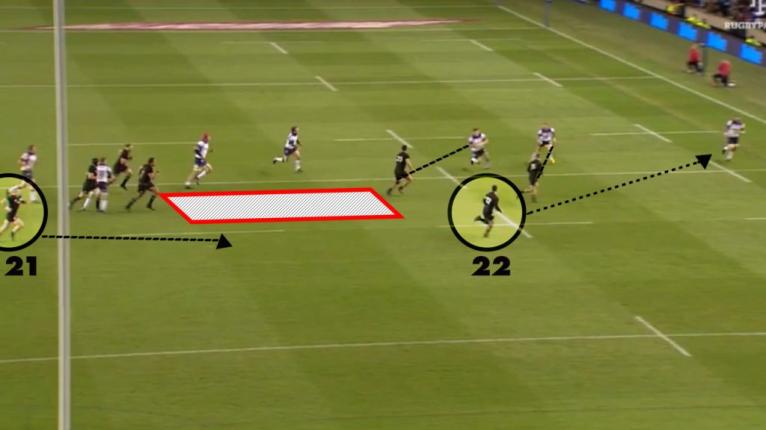
Scotland’s centre Huw Jones makes a smart decision to turn the ball back inside to Hogg and attack the gaping hole inside him. Hogg explodes through the line with a chance to make history.
“On the brink of something special wasn’t I,” Hogg said after the match.
“I knew it was going to be tough but like always I back my ability. Credit to Beauden Barrett it was a cracking tackle. I’m pretty gutted to chuck the ball away as well but, look, on another day that comes off.
When Hogg hits the ball he has 48 metres to run to the try line. He only has 16 metres to use between the sideline, while Barrett only needs to run 27 metres to reach the sideline.
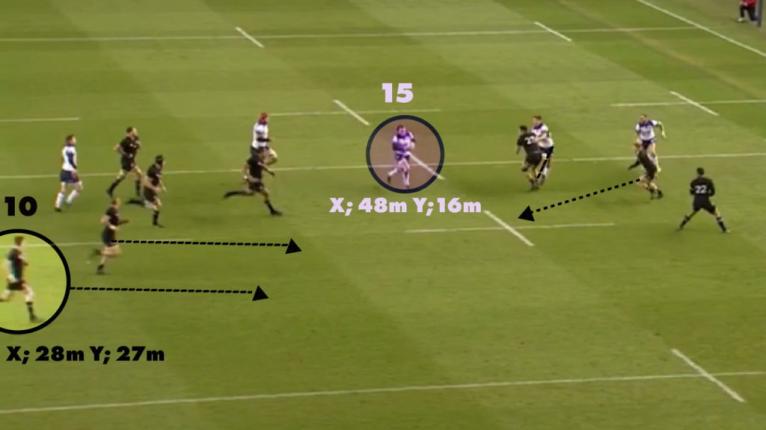
With three All Blacks defenders in play to realistically tackle Hogg, his degree of difficultly skyrockets, however, he does a great job over the first 15 metres by beating the first two defenders.
Barrett is only cruising across in second gear until this moment below when he realises he may be required to make the tackle, at which point he puts the foot down.
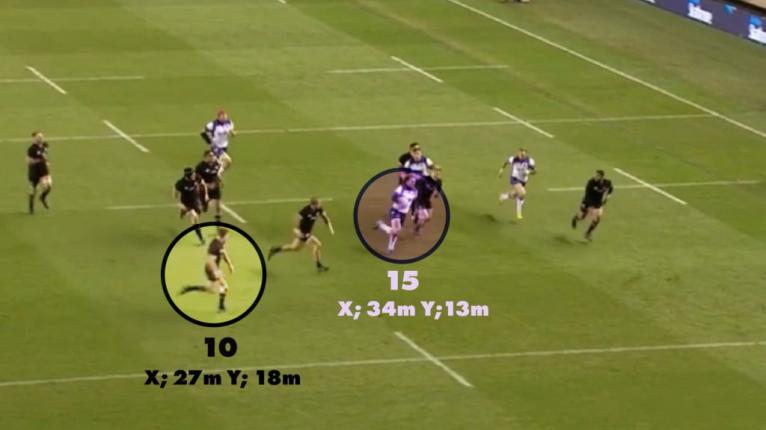
“He’s a great attacking player there was one point I thought I gave him too much on the outside and I was a bit worried so I was relieved to see the outcome” Barrett was quoted as saying afterward.
So what are Hogg’s chances of beating Barrett on the outside at this point?
The odds are still astronomically in Barrett’s favour. He has the angle, the shorter distance to cover (Y-axis opposed to Hogg’s X-axis) and the wider room for error.
We tracked Hogg’s speed from here at 31.08 km/h and Barrett’s at 29.59 km/h to the point of contact. Despite running slightly quicker Hogg still didn’t have enough space to outrun him.
Hogg would need to find another dimension of speed and reach 37-38 km/h to have a chance. As a yardstick, that’s what Usain Bolt averaged in the 100m final of the 2009 World Championships in Berlin.
He’s quick, but not that quick.

Hogg lands a decent fend on Barrett but loses balance before falling into touch. His inside support runners are fairly well covered and despite being able to release a one hand offload before being out of the play, the ball floats forward.
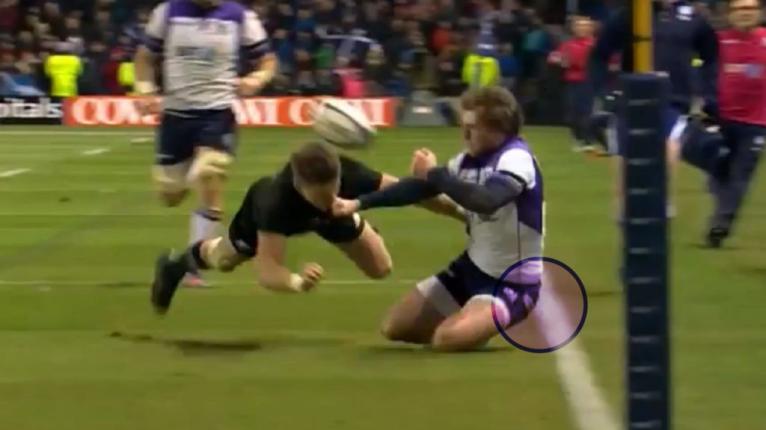
What more could Hogg do?
Hogg has stated that he has watched the tape a number of times, looking for what he could have done differently. Once he went outside Perenara, we believe there isn’t much he could have done differently.
His support runners are covered man-for-man and had he successfully got the pass off they would have been brought down. This keeps the play alive but is no guarantee Scotland scores.
They had 60% possession throughout the match and failed to score numerous times attacking the All Blacks line.
The only other way Scotland scores directly off the break is if Hogg kicks a deft grubber in-field of the left foot as Barrett tackles him, leaving it up to a foot race between support runners and the bounce of the ball.
Hogg should rest easy on this play, despite being 10 metres from history.
Steve Hansen summed it best, “It took a special player to stop a special player.”




























